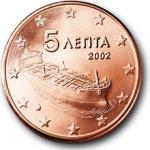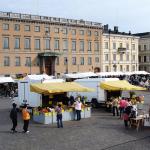Ten unusual facts about Israel that will surprise Russian people in Israel. ♥ღ♥10 facts about Israel that you didn't know♥ღ♥ Israel's national airline El Al has set a world record for the number of passengers on commercial flights
Israel is a unique country, a country with a special oriental flavor with Western democracy and values.
This is the only country in the world that professes Judaism.
Here are interesting facts about Israel:
1. Almost all police cars in Israel are Skoda.
2. Tel Aviv is a city where there are practically no Turks - they are all in Berlin and Ankara, but it is full of Somalis, Eritreans, Filipinos and Thais.
3. Due to a demonstration of right-wing activists in an Arab village of forty people, traffic is blocked, and the path of the demonstration is cordoned off by a regiment of police officers in helmets and bulletproof vests. They protect... the Zionists. (Not a joke, but a fact).
4. In Israel you won’t be able to live on social assistance - even very poor and constrained - you won’t be able to live.
5. There are areas and even cities in Israel where no one speaks Hebrew.
6. Non-Jews are prohibited from working in kosher bakeries, otherwise the bread will not be kosher. Energy, however.
7. The Israelis do not know and are afraid of dried fish. It can only be bought in Russian stores. “Phew! How can you eat this!” - Well, you start poking severed fish heads in their faces, they spit out, but still don’t eat.
8. If the question: “How to get there?” - they will yell something at you, gesticulating wildly and pointing their fingers in different directions - you are in Israel.
9. The fine for a slap is 500 shekels.
10. If you want the court’s leniency, you need to cry and tell the judge about your ruined life.
11. If you do not work in certain areas, do not engage in dubious activities and do not live in certain areas of certain cities, then you can live your entire life in Israel without ever encountering obvious crime.
12. If you are nevertheless attacked and hit, you can calmly take out your pistol and shoot the offender in the leg (or head).
13. In Israel, traumatic pistols and pepper spray are prohibited. On any street at any time of the day or night you will meet a dozen people with weapons.
14. The police in Israel, having caught up with you, beat you.
15. 80 percent of crime in Israel is carried out by Israelis.
16. If you have incurred even half a million in debt, it is enough to declare your ruin, you will be forced to find a permanent job, and they will withdraw a certain percentage from your salary to pay off the debt, and so on until you pay off the debt or die.
17. It is extremely difficult to evict even a tenant who does not pay rent in Israel.
18. Living in rented housing in Israel is a forced norm. Everyone wants to buy a home, but prices don’t allow it, the average three-room apartment costs $250,000, and this is not in the center of the country.
19. Repairing anything in Israel is so expensive that it is often easier to buy a new thing.
20. Israelis treat the Holocaust as a national tragedy.
21. The history of the Holocaust is ingrained in the consciousness of Israelis from kindergarten.
22. Children in Israel can do anything. Actually everything. No one will answer.
23. Beer in Israel is good, but there are few varieties, although there are many small breweries that make superb beer.
24. In Israel, during the working day, a person has the right to drink a mug of coffee.
25. Homeless people don’t have dogs. In winter, when it’s cold, they are taken from the streets and put into hotels at the expense of the state so that they don’t freeze.
26. Israelis are friendly towards foreigners. Tourism, however.
27. Drawing a swastika or raising your hand in a fascist salute is prohibited by law in Israel.
28. With the introduction of the new shekel, annual inflation is 3-4%, and the standard of living in Israel is considered one of the highest in the world.
29. There are practically no motorcycle gangs in Israel, and those that exist calmly ride motorcycles without showing excessive aggression.
30. Riding a motorcycle without a helmet is prohibited. Strictly. And on a bicycle too.
31. The worst Israeli insults are translated as “Son of a bitch” and “Your mother’s p...a (in Arabic).”
32. Israelis are very attentive to their health, to what they eat and what they drink - again, kashrut.
33. In society, “gay” people are treated almost as if they were the norm.
34. The level of culture and education in Israel is quite high.
35. Alcohol intoxication is a mitigating circumstance in court. With the exception of road accidents and malfeasance.
36. Until recently, Israeli women practically did not use cosmetics. Due to the influx of bright repatriates (from the CIS countries), Israeli women began to wear makeup furiously in order to somehow compete with the repatriates.
37. Israeli women almost always wear high heels.
38. Addressing everyone as “you” - in Hebrew, as in English, there is no “you” address.
39. One of the leaders of the Arab party proposed singing the Israeli anthem in Arabic. However, you can expect anything from these blessed ones.
40. Organic stores are quite popular. Prices there are on average 100 percent higher than in a regular store. Organic bananas are smaller than regular bananas, and lemons are indeed much more flavorful.
41. Over-the-knee boots are worn by many Israeli women, regardless of age, weight and weather.
42. An offer to drink a cup of coffee together in the evening from an Israeli often means an invitation to coffee, but with a hint.
43. There are fewer women than men in Israel.
44. Israelis are sure that the most popular Russian toast sounds like “To your health!” It is useless to persuade.
45. Christmas and New Year are not officially celebrated in Israel. New Year is celebrated in April, the year is counted from the creation of the world, that is, now it is 5771 years.
46. A crowded refrigerator in Israel means you have a big family.
47. People at the institution may be rude to you. If you start yelling and demanding the bosses, they become very polite.
48. Dogs in Israel are very friendly. It is extremely rare to hear a dog bark. Fighting breeds are prohibited.
49. The idea of a multicultural society in Israel has been partially successful - Jews and Arabs have somehow lived together for 63 years.
50. In Israel, sanitary standards are so high that you can safely eat uncooked meat, but not raw meat. Kashrut takes its toll.
51. In Israel, quite often you can enter a residential building without taking off your shoes.
52. A one-time trip to the sauna costs just under 200 shekels.
53. The cost of a prostitute’s services is on average 200 shekels per hour.
54. Israelis respect non-Israeli beer, but they also love their own, especially Goldstar.
55. Among Israeli women, it is common to view sex as sex.
56. A bribe to an official in Israel, for example a police officer, can result in a large fine or even a court case.
57. A civil servant in Israel does not pay public taxes and it is difficult to fire him.
58. Most apartments in Israel are not equipped with fire detectors.
59. Israeli women often do not know how to cook.
60. In Israel, a dash is placed in the “nationality” column.
61. Israelis are surprised at the ability of Russians to pronounce the letters “Y” and “Y”.
62. The proverb “Without a piece of paper, you’re a turd” was apparently invented by the Israelis.
63. Business letters in Israel end with the phrase “With great respect.” Even a summons for a fine.
64. The word “foreigner” in Israel is not a dirty word.
65. Israelis are generally welcoming and friendly in their interactions.
66. Married couples between Russians and Israelis are quite common, despite their different mentalities.
67. In a café-eatery, leaving a tip for the waiter less than 10% of the bill is considered redneck.
68. Israel becomes home to an emigrant when he receives a passport right at the airport.
69. Tattoos and piercings are very popular in Israel. Both among women and among men.
70. In Israel, even a popular TV presenter will be fired for a phrase about Hitler.
71. In Israel, they are very attentive to how owners treat pets. Even if a blind disabled person mistreats his guide dog, the dog will be taken away from him and he will be fined.
72. Israel is a paradise for those with a sweet tooth. It seems to me that there are no more diverse and, most importantly, beautiful sweets anywhere in the world.
73. Russian grocery products can be bought at any delicatessen store.
74. In Israel, I have not met men who have never fought ONCE IN THEIR LIFE.
75. To go fishing, you need to pay for entry to special places where you can fish - the caught fish can be cooked on the spot (there are barbecues) or paid at the price per kilogram when leaving the recreation area.
76. There are no hunting clubs in Israel.
77. Changing workplaces occurs without any problems.
78. The reason for not allowing you into an Israeli disco or club may simply be that the security guard did not like you. Girls are rarely allowed in. Beautiful girls are always missed; they serve as bait for visitors. They are also often given special cards entitling them to free drinks. A group of young Arabs in many cities has virtually no chance of passing. The security guard could be fired for this. There is no smell of Nazism here, it is a justified necessity.
79. Israel works around the clock.
80. You can almost always walk along the zebra crossing across an Israeli road with your eyes closed.
81. There is no fine for throwing a cigarette butt on the asphalt in Israel, but it exists - about 150 shekels.
82. One of the most popular drinks in bars is vodka with Red Bull (energy drink).
83. Israelis snack on beer with different things: sunflower seeds, peanuts, chips, salty bagels.
84. You get less drunk from Israeli draft beer than from bottled beer. Why dont know.
85. Israeli cuisine is very diverse and includes dishes from almost all over the world.
87. Everything that is necessary is expensive in Israel. Everything related to convenience and whims is very expensive.
88. The closest ice cream in taste to Soviet ice cream in Israel is at McDonald's. Although ice cream is freely sold in any Russian store.
89. Israelis are sentimental and surprisingly romantic.
90. Israelis, when communicating with Russian friends, often use Russian obscenities that they learned from another Russian friend.
91. The mentality of the Israelis is such that they do not get into a fight first. But if the fight has already begun, they often fight until the first blood is drawn.
92. Unfortunately, there are many pedophiles in Israel. However, in Russia they probably just beat them very painfully. But here it’s impossible. Even planting it is difficult.
Hello everyone, my dear viewers!
I am very glad to welcome you to my channel, in this video I want to talk about 10 things that can surprise a Russian person in Israel. If you are interested, stay with me. I would like to immediately note that everything I will talk about today is exclusively my experience, my observations and my opinion, and completely different things may be unusual for you. Be sure to write in the comments what surprises you in Israel, I will be very interested to read your opinion on this matter.
So, let's begin, the first thing that may surprise a Russian person in Israel is that in Israel there are a lot of people with machine guns: on the street, in a store, in a shopping center, in a cafe - everywhere you can meet people with machine guns. When you come to Israel for the first time, it can be a little shocking that there are people with machine guns everywhere around you: soldiers, people in civilian clothes, fragile girls with machine guns. And when you’ve been living here for some time, it becomes so ordinary, so commonplace that you stop paying attention to it.
The second thing that may be very surprising to a Russian person in Israel is that most Israelis consider military service not some kind of obligation that they do not want to fulfill; for most Israelis, military service is an honor. And for me, as a Russian girl who lived almost her entire adult life in Russia, it was very surprising for me to hear at first that people happily give several years of their lives to the army, to service to their homeland, and that they remember this time as the best time in their lives, that they are proud of it and happy that they served in the army, of course, for me this was very unusual and surprising. Of course, there are exceptions, and there are people in Israel who want to avoid military service and try to do this by hook or by crook, but this is very, very rare, and other people consider it a real shame, “and how is it possible for a person to doesn’t want to serve the army, doesn’t want to repay his debt to his homeland, this is shameful.” And such a person will definitely not be respected. Of course, in Russia, I am sure that there are people who are not trying to avoid the army, and are ready to give their duty to their homeland, are ready to serve in the army with joy, but the majority of young people are trying in every possible, impossible way to avoid the army.
The third thing that can really surprise a Russian person in Israel is sometimes some religious traditions, prohibitions, and so on that reach the point of absurdity. Let me give you an example. Surely you all know what Shabbat is. This is Saturday, this is the last day of the week in Israel, and on Saturday a believing Jew should only rest, he should not do any work. This does not mean that a believing Jew should not just not work on Saturday, it means that a believing Jew should not use any electrical appliances, he should not start a car, he should not cook, he should not light a fire... Sometimes, under these religious prohibitions, traditions should be adapted by non-religious people who, in general, have only an indirect relation to religion. Let me give you a specific example: we have an elevator in our house; to call the elevator you need to press a button, but a believer, a religious Jew should under no circumstances press the button on Saturday. And that’s why our elevator runs in “Shabbat” mode all Saturday. What does it mean? This means that our elevator travels to all floors, stops on all floors, stands on each floor for some time, about a minute, and moves on, and so it goes up and down, up and down. But the fact is that while it goes through all the floors and stops at each floor, it takes a lot of time, sometimes you have to wait for the elevator for a very long time - five minutes, ten, and sometimes even longer. Yes, you, of course, can say that you can go down the stairs on foot, you can go up the stairs on foot. Yes, in principle, it’s possible, we live on the fourth floor, but the thing is that we have a child, and, therefore, a stroller, and somehow with a stroller it’s not very convenient to constantly go up and down to the fourth floor. stairs, so we have to wait.
The fourth thing that may seem very unusual to a Russian person in Israel is, let’s say, the style of the average Israeli. As a rule, Israelis don’t care what they wear or what they look like, and people around them don’t care what you look like either. Very often you can meet on the street, in cafes, restaurants, shopping centers people in sweatpants with pulled knees, a torn T-shirt, and no one will look at this person condemningly, no one will think that he is a homeless person or a drunkard, he was the one who got into a fight, he they tore a T-shirt... For Israel, this is absolutely normal, and if you go to a restaurant dressed like this, for example, no one will tell you that there is dress control and you can’t come here dressed like that. You can enter almost any restaurant in any form. Of course, there are exceptions, for example, you can’t work in a bank dressed like this, the bank has some kind of dress code. But basically people don’t care how they dress, the main thing is that it’s comfortable, that it’s all ventilated, that everything is cool. This also includes the fact that Israeli girls very rarely wear heels. Of course, you can see girls in heels on the streets of Israel, especially in the centers of large cities, but this is very rare. And mostly girls wear high-heeled shoes only to some events. When compared with Russia, the vast majority of girls wear heels, even judging by myself. When I lived in Russia, I constantly wore shoes with heels: I went to work in heels, I rode the subway in heels, went shopping in heels... But when I came here, I realized that there was no such thing here, and this such a relaxing atmosphere, the atmosphere of dressing in something more comfortable, let's just say, it is, of course, very contagious, and I took off my heels, and now I only wear high-heeled shoes for some events.
Another interesting thing about the style of the average Israeli-Russian person may be surprised that at 20 degrees Celsius you can meet people on the streets in down jackets, boots, boots. For example, in 20 degrees Celsius I put on a T-shirt, a skirt and open shoes, and very, very dressed people can walk around me. For me, dressing like this is only suitable for zero degrees, for minus five degrees, but in Israel, apparently, Israelis are 20 degrees of heat is cold, and therefore they are insulated, this, of course, still amazes me very much and very, very surprised. And very often you can see situations where a guy is standing in flip-flops, shorts and a T-shirt, and next to him is a guy in a hat, down jacket, warm pants and some kind of winter boots.
The fifth thing that can really surprise a Russian person in Israel is that, as a rule, a car in Israel is exclusively a means of transportation. If in Russia, for example, very often a car is a means of prestige, and a person may not have an apartment, but, having saved a certain amount of money, buys himself a car, then in Israel this will not happen. And very often you can come across a situation where there is some very expensive mansion, a house in some very prestigious area of Israel, and next to it there is a very, very simple car, from some shaggy era. Sometimes you even come across very broken-down cars, with the headlight stuck on with tape, and the door, you already think, is going to fall off. Both a person with average income and a very, very rich person can drive the same brand of car. You can never tell, either by car or by appearance, how much money a person has. And that’s why there are very few expensive cars in Israel, such as Mercedes and BMW. Of course, they do occur, but if you look at them as a percentage of Russia, there are much fewer of them. As for some very expensive sports cars, for example, Ferrari, Maserati, Bugatti, in the three years of my life in Israel I have never seen such cars. Of course, I’m sure there are such cars in Israel, but I think they can be counted on one hand. Although here everything is conducive to the fact that, if you have a lot of money, buy yourself such a car and enjoy driving on good roads, because in Israel, in fact, the roads are very good.
The sixth unusual fact that may surprise a Russian person is that there are very, very many stray cats in Israel. This is due to the fact that cats live very, very well in Israel: they know that no one will touch them, they are fed, it’s warm and good here, they sunbathe here in the sun and enjoy life. Of course, the state of Israel is trying to fight the breeding of cats, but somehow it’s not very successful. The state catches cats, castrates them at its own expense and releases them back, but cats tend to multiply exponentially, of course, this method does not really work, which is why there are very, very many cats in Israel. By the way, a very interesting fact is that when a street cat is neutered, a small piece of his or her ear is cut off so that people know whether this cat or cat is neutered or not.
And learn a lot of interesting things!
We have collected 30 amazing facts about the small but very strong and interesting state of Israel. After this article, you will rethink everything you knew about this country before, and you will probably want to visit there!
Israel ranks third in the world in terms of business expansion
It also has the world's highest rates of entrepreneurship among women and people over 55
Israel was the first country to ban underweight models
Israeli banknotes are marked in Braille
Israelis rank third in the world in consumption of vegetables and sweets
The largest known dog cemetery of the ancient world has been discovered in the coastal city of Ashkelon.
Out Magazine names Israel the gay capital of the Middle East
Israel has 137 official beaches along 273 km of coastline

Israel has the most colleges relative to population
The same goes for museums
...and also startups!
Voicemail technology was developed in Israel
The first antivirus software for computers was created in Israel in 1979
Israel has two official languages: Hebrew and Arabic
The city of Beersheba (bib. Bathsheba) has the largest number of chess grandmasters per capita in the world
The Israeli city of Haifa has one of the smallest subways in the world, with tracks only 1.8 km long.

Israel is one of only three democracies in the world without a codified constitution. The other two are New Zealand and the UK
The Dead Sea is the lowest place on Earth
The Dead Sea is very easy to swim in due to the high concentration of salt. It's almost impossible to drown here

Israel is the only country to revive a dead language and make it its official language
Israel's national airline El Al sets a world record for the number of passengers on commercial flights
The largest pepper was grown in Israel and entered into the Guinness Book of Records in 2013
Life expectancy at birth in Israel is 82 years
The national bird of Israel is the hoopoe

Cooking fats developed in Israel are capable of destroying cholesterol and other fats in the blood.
An Israeli company has developed the world's first jellyfish repellent device.
Israeli scientists have discovered the cause of chronic bad breath and developed an easy way to fix it.
More than 44% of all lawyers registered in Israel are women

Israel ranks second in the world in the number of new books per capita
Last Valentine's Day, Israel sent 60 million flowers to Europe for sale.
All printed publications: newspapers, books, prospectuses and even restaurant menus are opened and read not from left to right, but from right to left.
This year, Yom Ha'atzmaut, Israel's Independence Day, is celebrated on April 23.
On the eve of the celebration of the 67th birthday of the Jewish State we have collected 10 little-known facts from his complicated history.
1. El Al Airlines had flights to Tehran
Relations between Iran and Israel generally developed quite warmly until the Islamic Revolution, which resulted in the overthrow of Shah Mohammad Reza Pahlavi in 1979. In 1950, Iran became the second Muslim country after Turkey to recognize Israel. Iran supplied oil to Israel during the OPEC oil embargo, and Israel sold it weapons. At that time, there was active trade between the countries, and civil planes regularly flew from capital to capital. A week after the Shah was removed from power, Iran cut off all ties with Israel, and an office of the Palestine Liberation Organization opened on the site of the Israeli embassy in Tehran. Today, even after 35 years of hostility, Iranians have less negativity toward Jews than other Muslim peoples in the Middle East. In 2014, an international survey on anti-Semitism conducted by the Anti-Defamation League found that 56% of Iranians held anti-Jewish views, compared with 80% of Moroccans and 93% of Palestinians in the West Bank and Gaza Strip. The 2014 documentary “Before the Revolution” talks about the relationship between Israel and Iran.
2. Descendants of Nazis moved to Israel
At least 400 descendants of the Nazis converted to the Jewish faith and moved to Israel - the creators of a documentary film released in 2013 are sure of this. Many former Nazis also became Jews or married Israelis, but do not live in Israel. For example, the great-niece of Heinrich Himmler, who married an Israeli Jew and now lives on another continent. In the early years of Israel, there were heated discussions about whether to accept German reparations for the Holocaust or not (in the end, they were accepted). And Germany itself, like everything connected with it, remained an extremely controversial topic for a long time - from 1956 to 1967, films made in Germany were banned in Israel.
3. Ben-Gurion invented couscous
Tiny flour balls of Israeli couscous - ptitim - appeared in the 50s. Then Israeli Prime Minister David Ben-Gurion turned to food manufacturer Osem with a request to develop a local wheat product as an alternative to rice, which does not grow in the country and for which the country simply did not have the money to purchase in conditions of austerity. Ptitim, which was called “Ben-Gurion’s rice,” immediately won the love of the population.
This 1958 photograph of a family sitting in front of a television could not have been taken in Israel because there was no television there until 1966 (Wikimedia Commons)
4. There was no television in Israel until the late 60s
The first Israeli television appeared in 1966, primarily as an additional educational tool for schools. Regular public broadcasting began on Israel's Independence Day in 1968. For the next two decades, Israel had only one channel, and broadcasting was limited to a few hours a day. The second channel appeared in 1986, and cable television came to the country in 1990. Today, Israeli TV is a real source of inspiration for Hollywood. The series “Homeland” (Showtime), “Patients” (HBO), “Your Family or Mine” (TBS), “Devotion” (NBC), “Tyrant” and “Boom” (Showtime) are all remakes of Israeli projects.
5. Elizabeth II's mother-in-law was buried in Jerusalem
Prince Philip's mother, Princess Alice of Battenberg, was born in 1885. The girl was born with a diagnosis of deafness, however, she learned English and German in the language of the deaf and mute and even married the Greek and Danish Prince Andrew. During the Nazi occupation of Greece, Alice hid a Jewish woman and children, for which Yad Vashem recognized her as one of the “Righteous Among the Nations,” and the British government as a “Hero of the Holocaust.” In 1967, she moved to London and lived at Buckingham Palace with her son and his wife, Queen Elizabeth II. Two years later, the princess died and her body was placed in a burial vault at Windsor Castle. In 1988, her remains were transported to the monastery at the Church of St. Mary Magdalene on the Mount of Olives - before her death, she expressed a desire to be buried there. One of the oldest existing cemeteries is located on this mountain.
6. Alaska Airlines flew thousands of Jewish Yemenis to Israel
After Israel's victory in the War of Independence in 1948, anti-Semitic riots broke out in Yemen, and local Jews decided to move en masse to the historical lands. James Wooten, president of Alaska Airlines, was imbued with their difficult situation and ordered the organization of flights for repatriates. Between June 1949 and September 1950, as part of Alaska Airlines' secret Operation Magic Carpet, twin-engine C-46s and four-engine DC-4s flew approximately 430 flights, transporting approximately 50,000 Jews from Yemen to Israel. The pilots had to overcome many difficulties: lack of fuel, sand storms, enemy shelling, one of the planes even barely landed due to the loss of an engine. Despite all the difficulties of the flight, all passengers were safely transported to Israel.
7. Golda Meir was the world's third woman to serve as prime minister.
Meir (née Meerson) became Prime Minister of Israel in 1969. Before this, two women had already held such a high position in world history - Sirimavo Bandaranaike in Sri Lanka (1960-65) and Indira Gandhi (1966-77) in India. Meir was born in Kyiv, grew up in Milwaukee and after her marriage moved to Mandatory Palestine. She and her husband settled on a kibbutz, and Golda almost immediately began to be active in the Federation of Workers. Despite Meir's enormous popularity among American Jews, her policies are still heavily criticized in Israel - primarily because of the obvious mistakes they made during the Yom Kippur War in 1973, when Meir decided not to launch a preemptive attack on Arab forces on the Israeli border with Syria.
And although the state investigative “Agranat Commission” established that Meir was not directly responsible for what happened, she very soon left her post. She was replaced in 1974 by Yitzhak Rabin, who held the position until 1977. He was appointed prime minister again in 1992.
8. According to Israeli law of 1980, all new houses must have solar water heaters installed.
The law was adopted as a measure to combat the energy crisis of the late 70s - thanks to it, Israel became the first country in the world in terms of the use of solar energy per capita. According to official estimates, today 85% of homes use solar energy to heat water - that's 3% of electricity consumption in the entire country. But today, Israel lags behind other countries in the use of solar energy for other purposes, and more and more developers and homeowners are using loopholes in the law to circumvent the need to install just such a boiler system.
9. Jerusalem's Mount Scopus is not actually part of the West Bank of the Jordan River
Despite the fact that Mount Scopus is located in east Jerusalem, where the Hebrew University campus and the Hadassah Medical Center stand, it has been Israeli since the founding of the state. After the end of the War of Independence in 1949, the hill was controlled by Israeli troops, although it was located in Jordanian east Jerusalem. Every two weeks, under the protection of the UN, Israel transported military forces and supplies to this enclave. The convoy often came under fire from Arab forces, and in 1958 it was attacked, resulting in the deaths of 4 Israeli soldiers and one UN soldier. Mount Scopus became part of the Jewish territory of Jerusalem as a result of the Six-Day War in 1967.
10. Albert Einstein was offered the presidency of Israel
Einstein received this proposal from David Ben-Gurion in November 1952, a few days after the death of Israel's first president, Chaim Weizmann. Israeli Foreign Minister Abba Ebman wrote to the brilliant scholar that the prime minister's offer was "a gesture of the greatest respect that only the Jewish people can have for any of their sons." Enstien responded that he was "deeply touched by the offer of the State of Israel, but with regret and regret must reject it." Einstein did not accept the post, but did not stop worrying about the country. “My connection with the Jewish people has become my strongest human connection since I began to fully understand our dangerous position among the peoples of the world,” he admitted. It is noteworthy that Ben-Gurion officially denied press reports that it was he who offered Einstein such a post. Three years later the scientist died.





